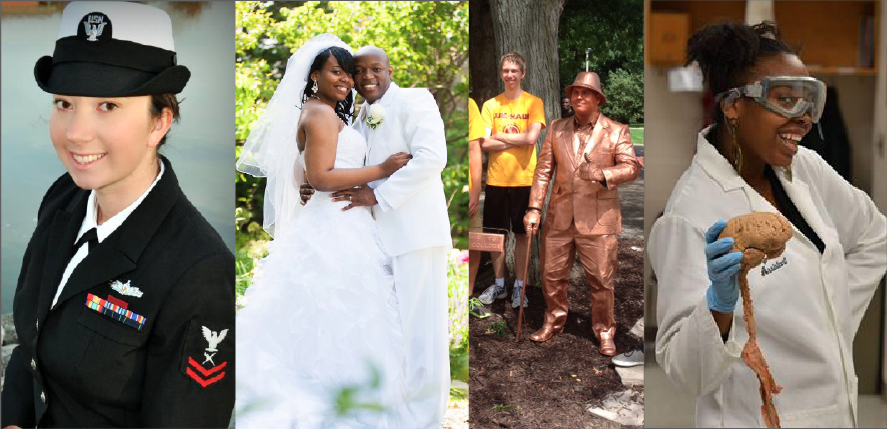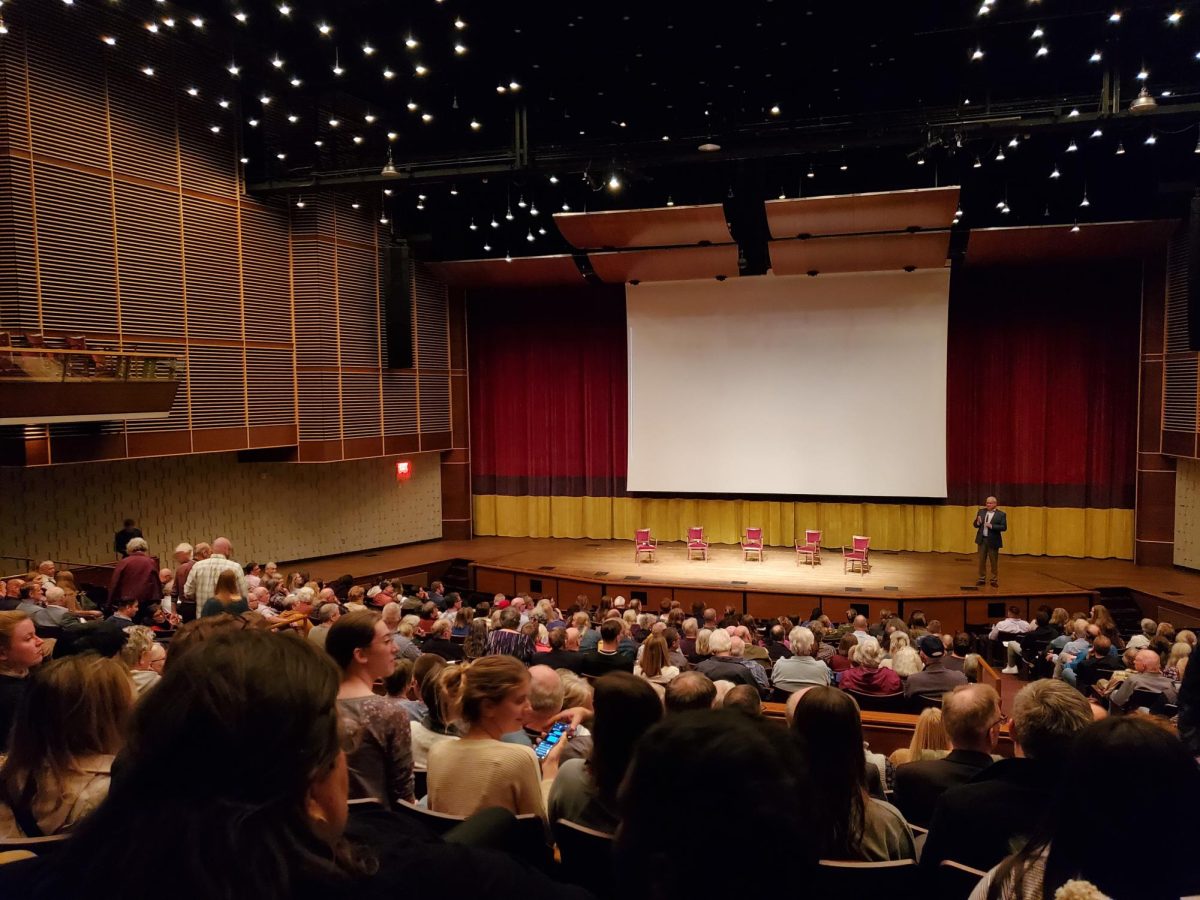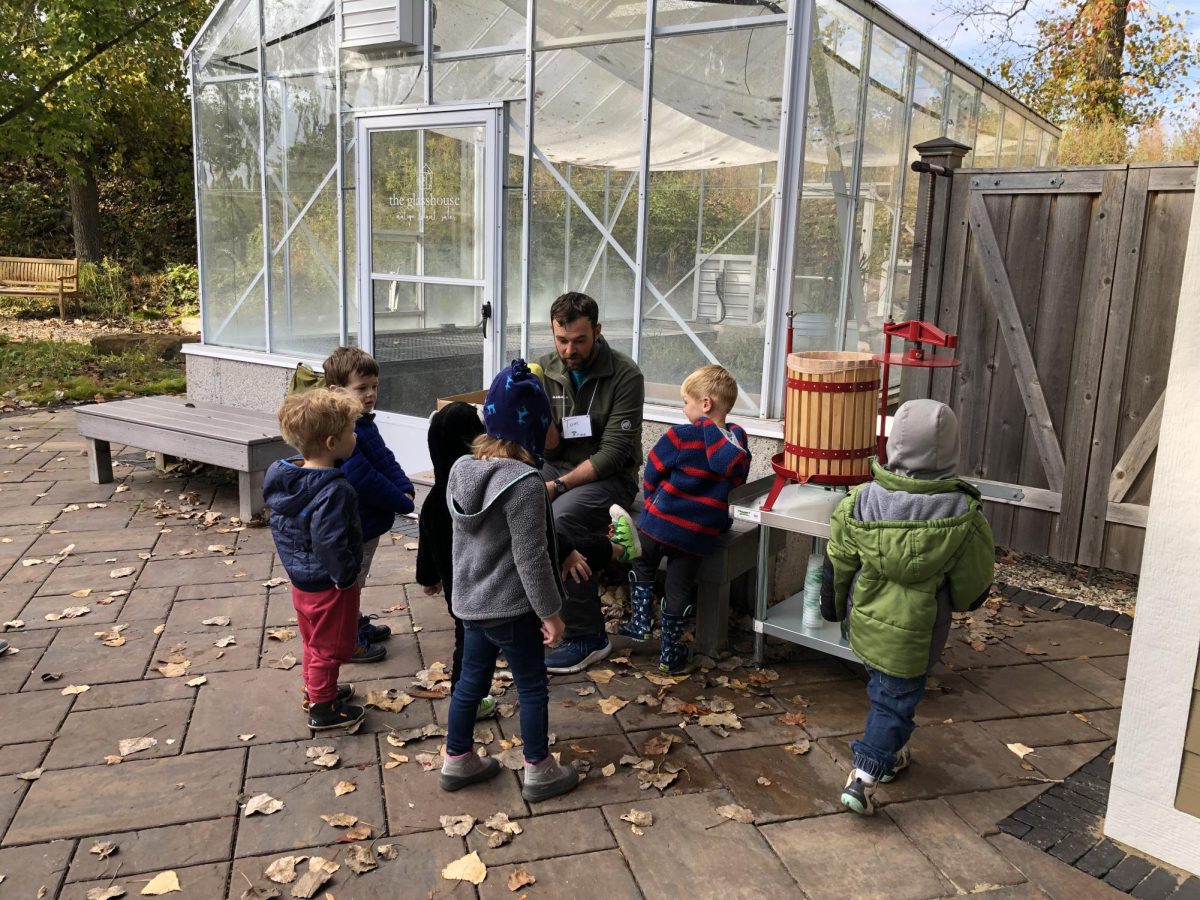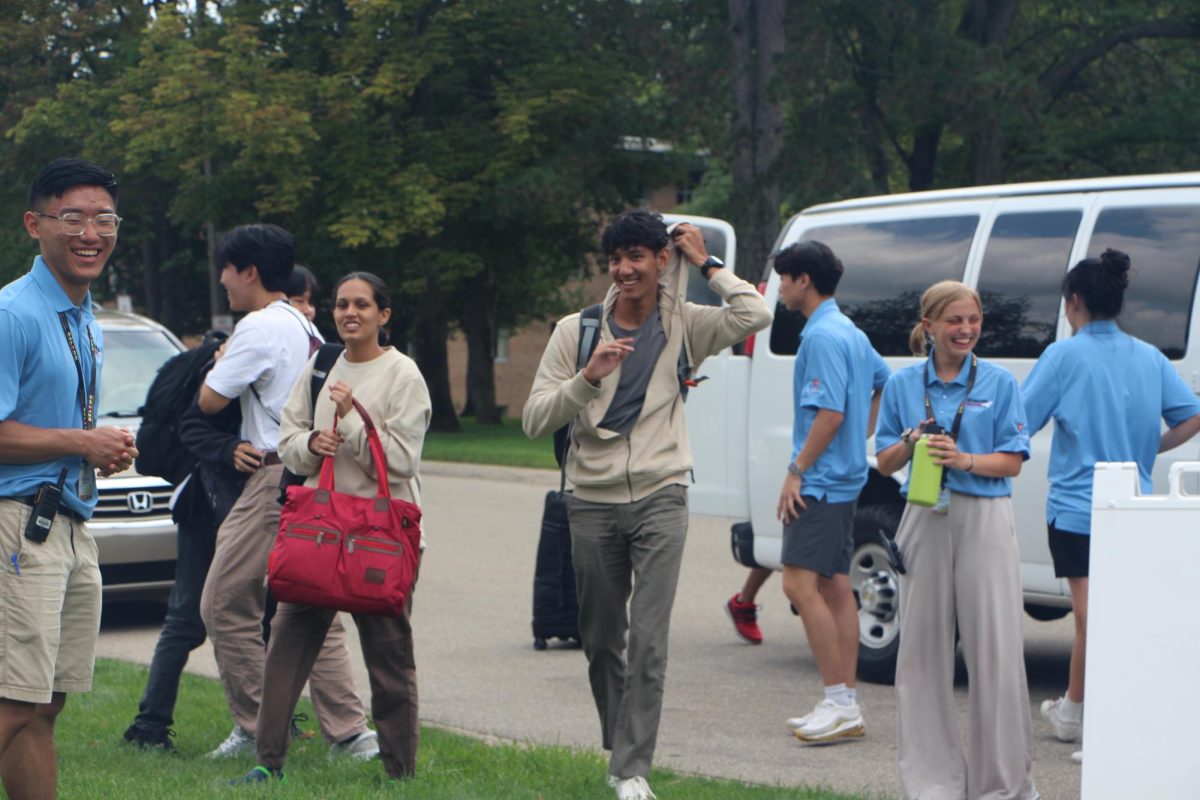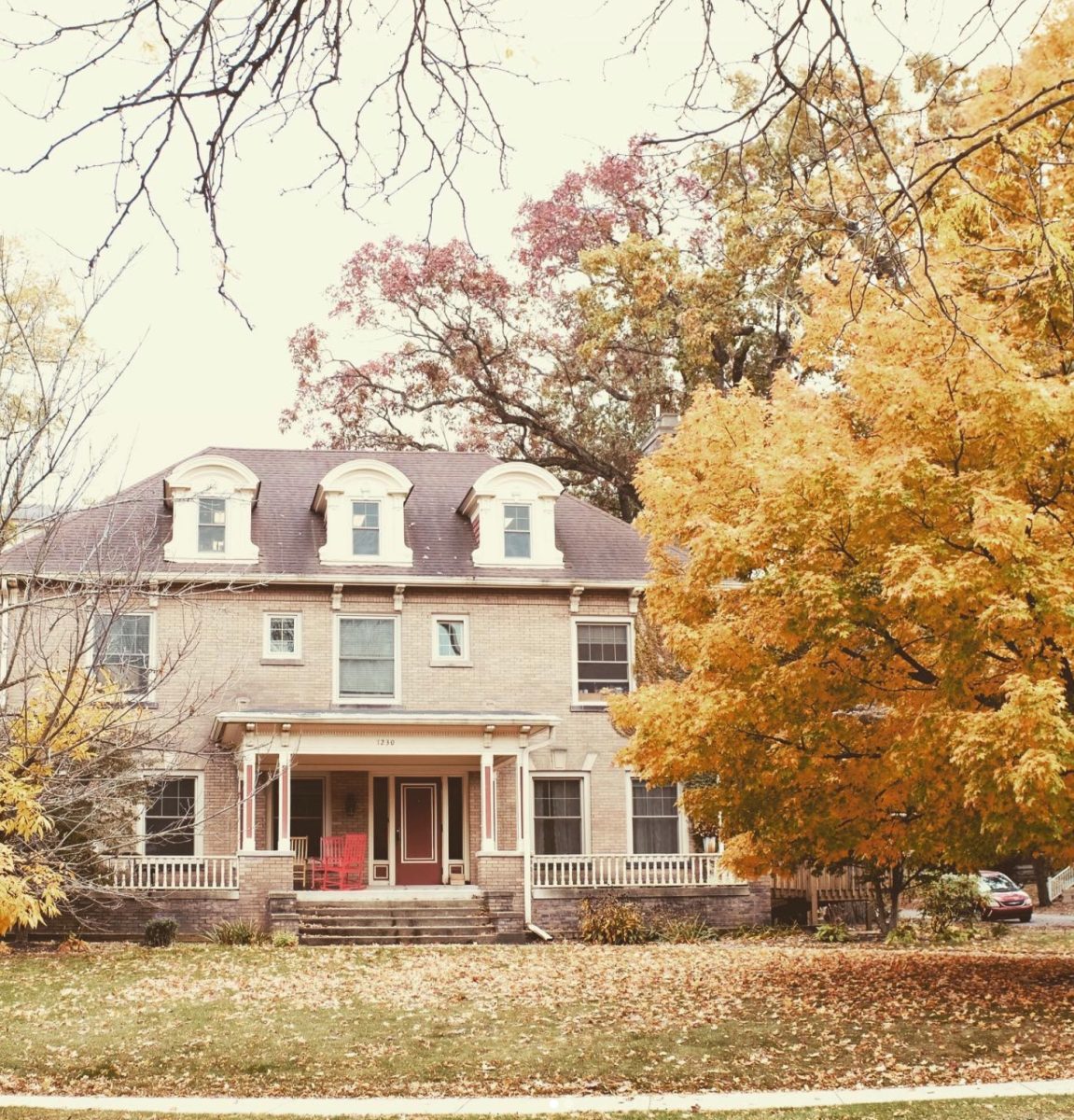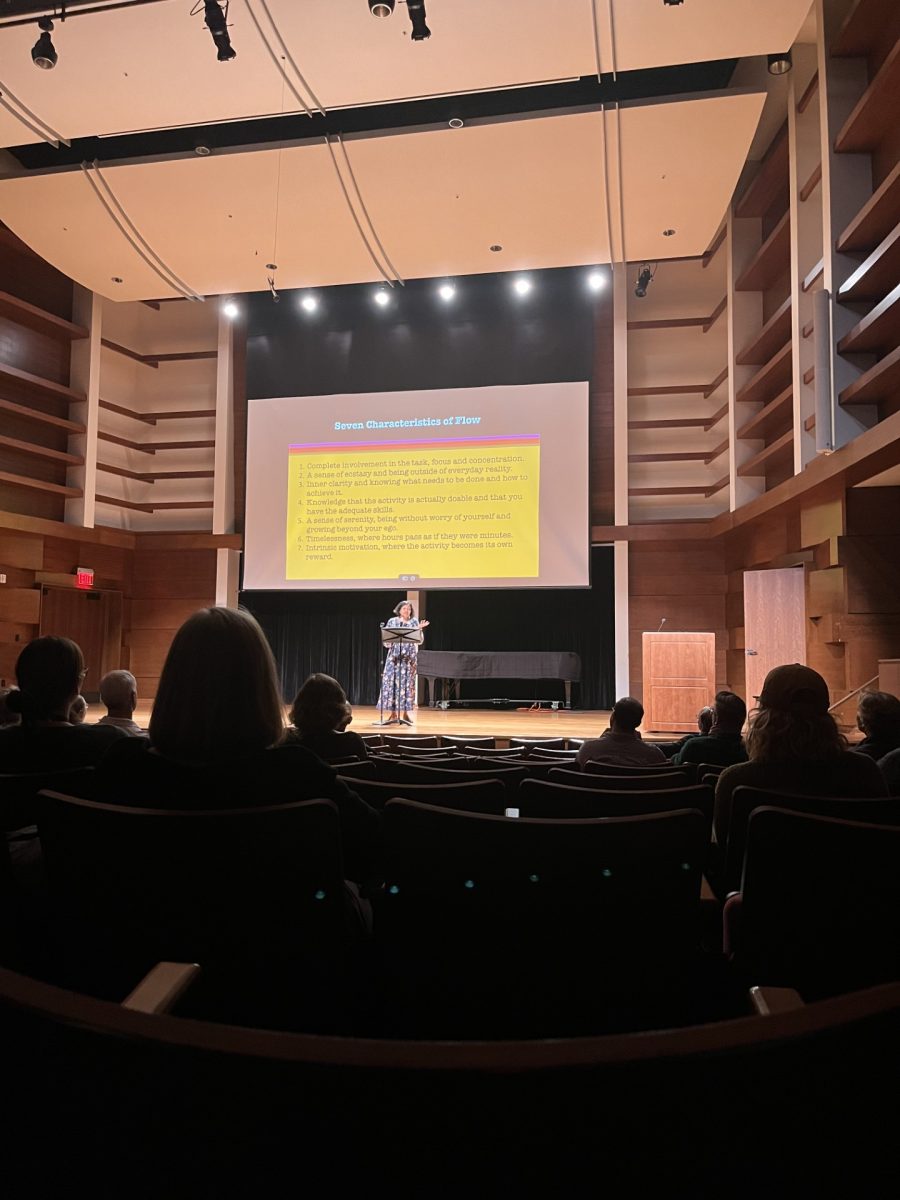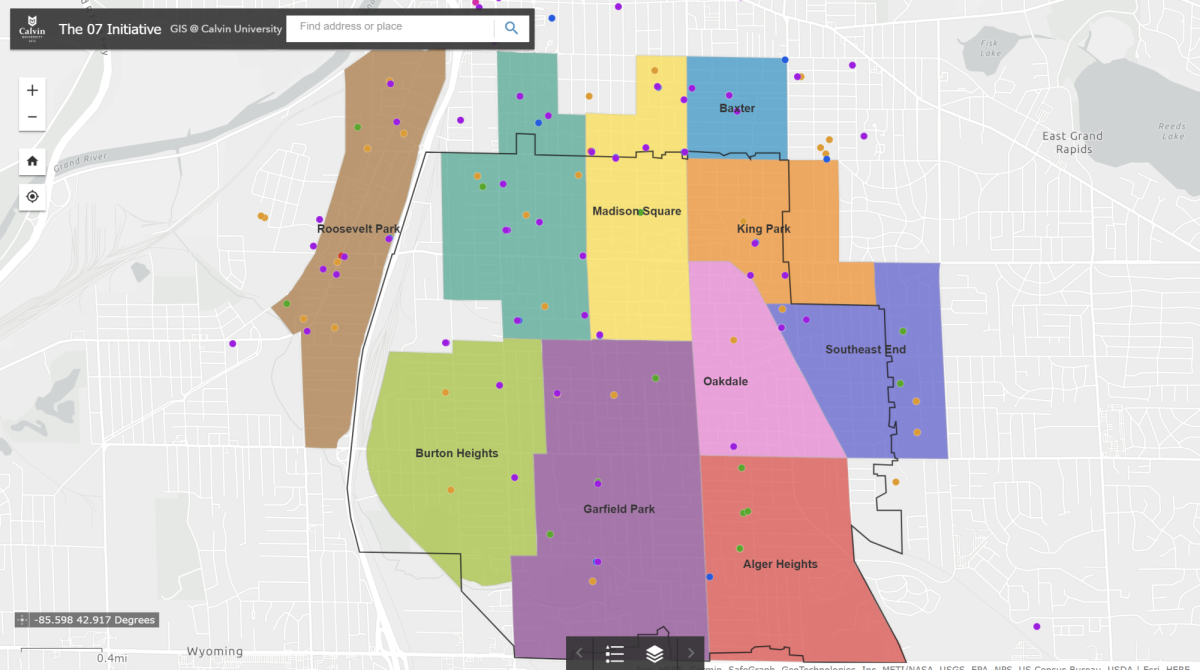Imagine being a hard-working Calvin student who has a midterm in two days, a paper due at the end of the week and all the regular homework that goes along with it. Makes for a stressful week, right?
Now, imagine having two kids you have to pick from school each day, bills to worry about, a job, a spouse, housework and meals to cook for your hungry family on top of school work. This is a day in the life of one of Calvin College’s adult learners.
Bob Crow, dean of student development, oversees students enrolled in the adult learning program at Calvin. According to Crow, to be considered an “adult learner,” a Calvin student must have “had at least a four-year interruption after high school.”
Calvin’s adult learners are usually over 24 years old.
The mandated interruption could be previous education elsewhere, as is the case for Dantia Dandjinou, 26, who is a married certified pharmaceutical technician studying nursing. She attended both Davenport and GRCC before coming to Calvin.
“I am on the GRCC nursing wait list, but it is three years long,” said Dandjinou. “I didn’t want to just sit around and do nothing, so it was imperative that I pursue other endeavors. I felt led to Calvin.”
Nicole Beson, 29, on the other hand, served in the navy aboard a destroyer for five years before starting her college career as a social work major.
“I actually wanted to come to Calvin out of high school,” said Beson, “but I wasn’t able to afford it, so I was going to have to take loans out.”
Calvin’s adult learners program knows that these students have very busy lives and seeks to connect adult learners with each other as much as they can.
“We meet once a month as a collective group and have lunch together. Bob Crow will talk about how Calvin can expand and make this very dominant younger institution work better for more adult learners and to get more adult learners in,” explained Beson.
These lunches provide a way for adult learners to get a sense of community alongside others who are in similar life stages and understand the difficulty of balancing school, work and home life.
“I like going to the lunches and being a part of the program because that’s where you really get your sense of community because everybody can relate to things that you can relate to,” said Dandjinou, I love being in class with a whole spectrum of people, but it’s so nice to have that sense of community and people who understand what you are going through.”
“Calvin can be a tough place when you do not live on campus and can often feel a bit lonely,” admitted Heather Flint, another participant in the program. “It is a blessing to have the ability to offer one another support and encouragement. It has helped me realize that I am not alone on this journey.”
Beyond the lunches, Crow hopes to expand the program and be able to build better relationships between the students. “I would like for them to recognize that even though they’re a small percentage, they are part of a group and they belong to one another,” said Crow. “We provide the bare minimum. … We could do better if we had more resources to get this niche in particular.”
“I would love to get together more than once a month,” said Marcia Beare, another adult learner. “There are some opportunities I missed due to living so far away, but I would enjoy meeting these wonderful people more often.”
Though the program is consistently looking for ways to reach out, students feel that Calvin and the adult learners program are adequately preparing them for life after graduation.
“If anything, I feel like I’m over-prepared — everything is so in-depth!” said Dandjinou. “Calvin requires a lot of you, but they invest so much more.”
But coming to Calvin as a non-traditional student has its downfalls. Adult learners find themselves in classrooms full of younger students who have very different schedules and social lives.
“For me to get involved on campus,” said Beson, “I just can’t, because I don’t live here.”
“They have their own friends, slang, freedom and interests,” said Beare. “I have outside responsibilities that prevent me from just dropping things quickly.”
“Trying to find the right balance between school life and the life that comes with being an ‘adult learner’ can be a bit challenging at times,” said Flint. “[We] can have competing priorities and responsibilities such as having to care for older family members, marriage, financial obligations, health issues that may arise or other things that traditional students generally may not have to think about for some time.”
“I think there are certain things [adult learners] miss out on, but it’s because their lives are so full in other places,” said Crow. “Sixty percent of students live in residence halls, and, well, you aren’t going to live in the residence halls if you are 42 and have three children at home.”
“It’s really a juggling act,” said Dandjinou. “You have to prioritize your time and sometimes you have to put in the extra work.”
It is not just the extra outside work that often can isolate the adult learners from their fellow students.
“I think [adult learners] have a significant challenge in seeing the sea of traditional age students and feeling like they can fit in it,” said Crow.
Crow also mentioned that sometimes students ask adult learners why they are here or why they are studying when they are “old.”
“I have heard some very condescending comments and harsh judgment,” said Flint. “It was hurtful and definitely caught me off guard.”
“I believe it is hard for the younger students to move outside their comfort zone and just enthusiastically welcome an adult learner as their friend,” said Beare.
Both Crow and students in the program mentioned that regardless of age, they are students first, just like everybody else in their classes.
“I feel like you can learn anything from anyone; everybody is important and valuable and has something to bring to the table,” said Dandjinou. “It may just come wrapped in a different package. Everybody has something to offer.”
Sometimes, however, the age gap gives both parties reason to smile.
“The age difference has provided some opportunities for humorous situations,” said Beare. “I had a student ask if I used E-books when I attended Calvin the first time around. I responded, ‘Honey, when I attended Calvin the first time, we were using typewriters.’”
“I remember one time I was coming out of class and some of my classmates were talking,” said Dandjinou. “One said, ‘I don’t know — should I say I love you first or should he?’ and I was like, ‘I’m married! I remember when I was in that stage!’”
Crow stressed the importance of traditional students taking advantage of the fact that some of their classmates are incredibly wise and have life experiences that all students can benefit from hearing.
“Get to know them, listen to their stories,” said Crow. “Take advantage of the fact that someone in a seat next to you has amazing life experience!”
Beare agreed. “[Traditional students] can be so enriched by talking to adult learning students, because we have wisdom they have not yet acquired and likely will not acquire for a few more years.”
Crow mentioned that he notices a distinct maturity in the adult learners that traditional students haven’t quite gotten yet.
“When you are coming right from your parents’ home and move into your dormitory, have your meals provided for you, have to clean once in a while and learn how to do laundry, it’s still a fairly sheltered experience compared to when you really are on your own, have a mortgage payment and insurance payment for your car and have to think about the condition of your house and the inside and the outside,” said Crow.
But this “life experience” goes beyond just the basics of keeping a house clean, cooking, paying bills and taking care of a family. Crow mentioned that many have traveled, served in the army or are coming here after living in a resettlement camp in a war-torn country. “Let them bless you with their lives; they are all so different,” said Crow.
Though they are older and have more life experience than the average student, adult learners share something with all students; they are here to learn, grow and contribute.
“I actually find myself as a mentor/friend with [traditional] students,” said Beson. “They love to hear my sea stories, but at the same time we are at the same level because we are studying together!”
“No matter a person’s age, gender or race, everyone is valuable. Everyone has a unique perspective in which they operate,” said Dandjinou.
Crow agrees and says he enjoys getting to know the adult learners.
“I am blessed by it. They are a beautiful group of students that enhance our community and remind us why we do this important work of learning. It’s a privilege.”




